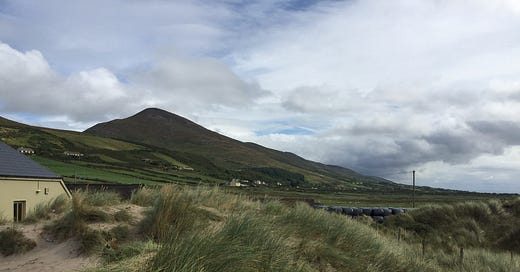[the] north[ern] [of] ireland
It is both a dignity and
a difficulty
to live between these
names,
perceiving politics
in the syntax of
the state.
And at the end of the day,
the reality is
that whether we
change
or whether we stay
the same
these questions will
remain.
Who are we
to be
with one
another?
and
How are we
to be
with one
another?
and
What to do
with all those memories
of all of those funerals?
and
What about those present
whose past was blasted
far beyond their
future?
I wake.
You wake.
She wakes.
He wakes.
They wake.
We Wake
and take
this troubled beauty forward.
- Pádraig Ó Tuama, 2013It’s been hard to read the news lately. It’s always hard to read the news, but the intensity of that feeling ebbs and flows, and recently, it’s been flowing. Finding a poem for today was more challenging than I expected, not because there isn’t incredible poetry about resistance, conflict, and change, but because most of it didn’t fit with my goal for this project: to explore feeling spiritually in-between.
I listened to this poem a few years ago on one of my favorite podcasts. It talks about the aftermath of the Troubles in Northern Ireland, and its title is literally in between. “Northern Ireland” and “the north of Ireland” — two descriptions that could be interchangeable if not for their bloody history.
There are two truths in this poem that feel universal:
The way we describe ourselves matters, but agreeing on the right words isn’t the same as agreeing on how to live on this earth together.
No matter what path we choose next, we must live with death in our wake.
I often think the gulf of our divides runs so deep because of what lies beneath the surface. When we argue about the name of a person or a place, we are really asking each other to treat us with dignity. When we fight about what needs to be done, we are actually trying to tally the hurts of the past, as if history were a set of books we could balance rather than an unwieldy burden to carry forward without killing each other.
I don’t know why Ó Tuama capitalizes “We Wake” in the last stanza, but to me it makes the line look like a title, as if a new little poem were beginning:
We Wake
and take
this troubled beauty forward.It’s a sentence I want to take with me into the news cycles to come.
With you,
Jess




Thanks for this lovely inspiration, Jess